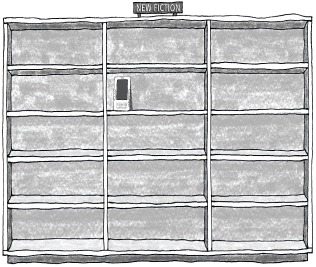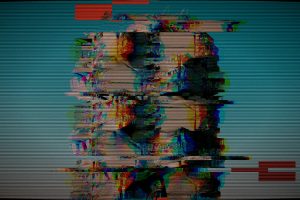E-books will change the way we read, but the digital future of fiction remains unclear.
Oprah, the queen of book clubs, has blessed the Kindle, Amazon's new and recently improved e-book reader, signaling that we may be changing the way we take in fiction and non-fiction alike. The Web has already changed the way most young people read newspapers, magazines, and their mail; it was only a matter of time before the book itself went digital and started showing up on handheld screens in subways, airports, restaurants, and classrooms.
It is easy to see the runaway appeal of e-book readers like Kindle and Sony's Reader. The 11-ounce paperback-sized Kindle can hold 1,500 books-much less to pack for the beach. The screen is easy to read in all kinds of light, and you can adjust the font size, look up a word in the reader's digital dictionary, bookmark or highlight a passage, or have books read to you through an audio function.
Ordering new books for your Kindle is a snap, and buying them is significantly less expensive than purchasing a paper copy (and easier on the rainforest). Amazon has nearly a quarter of a million titles ready to be downloaded directly into your Kindle. Hardcover bestsellers run just under $10, older books cost between $3 and $6, and thousands of titles are available for free.
And for commuters and passengers preferring to curl up with a good newspaper or magazine, Amazon offers Kindle subscriptions to The New York Times, The Wall Street Journal, Time, Newsweek, and dozens of other papers and magazines. You may never smudge your fingers again.
This fall a number of colleges and universities, including Case Western, Princeton, and Arizona State, will provide incoming students with e-book readers already loaded with several textbooks, and most textbook publishers across the country will soon be selling digital versions of their books through Amazon and other companies. This could cut in half student book bills (a significant part of the cost of college), and will certainly reduce the weight of those book bags everyone lugs from class to class.
Still, in spite of all the advantages of e-books and their digital readers, there is some nostalgia for the bound book. The books we got and read as children were more than the words on the pages (in many of our first books we never read these words ourselves). And the books we opened and read in school or the novels we got from the library and the bookstore were tactile, physical things that gave us pleasure beyond reading the printed page.
Some of these books were gifts; others became gifts as we read and enjoyed them; many of them are stored away as whole memories. We remember not just the story in the book, but the story of us reading this particular book, in that particular chair or couch or cabin, and we remember giving a copy of that book to someone we hoped would like it as much as we did.
For more than 2 million years we have evolved to read and savor our world through five interlocking senses, and as readers we come to our books with more than just a hunger for words and ideas. We enjoy holding and opening a book, take pleasure in its binding and font and illustrations. We remember its story, how it came to us, what it was like to read it, with whom we read it.
You cannot judge a book by its cover, but you can learn something about it and about those who made and cared for it. And there is some loss in the digital revolution that reduces a book to a string of letters across a screen. The loss may not be great, but it is real, and worth pausing to note.
The convenience of the e-book also covers up the loss of the bookstore and library-or at least their diminishment. It is so much easier to download a book over the Web, to snatch it out of the air and drop it into our personal reader. But the inconvenient trip to the library or bookstore put us in the company of thousands of other books and dozens of other readers.
We can browse for books on the Web, but our search is solitary and we are guided to our own particular niche, not wandering off into strange shelves or sections, not bumping into other readers with divergent tastes. In a bookstore or library we join a diverse and democratic collection of readers congregating in these book churches to savor all sorts of stories.
Where will readers congregate when we buy all our books over the Web, when the last local bookstore is gone, when libraries are completely digital? Will we need to go to coffee bars or airports to meet other readers or to chat with someone about an interesting book?
And will we read e-books the same way we curl up with a good novel? Paper books are little islands, without hyperlinks or browser pages. Diving into them, we cut ourselves off from a thousand distractions and connections. But an e-book reader is always ready to link us to a million other texts, to exit the book we are reading and fly off to another thought.
The paper book is our last symbol of deep, undistracted thought, our last vacation to a place without cell phones or e-mail. Paper books are one of the last things that ask for (or help us develop) our undivided attention. The e-book reader invites us to fly along the surface, always ready to go someplace else as soon as we lose interest. It is more like a chat than a serious, sustained conversation.
The e-book reader is probably here to stay, and the digital revolution will certainly change our books and affect the ways we read, offering us more convenience and access at better prices and less weight.
But it might be worth pausing to wonder whether all the changes offered by this convenient new technology are ones we want to embrace.















Add comment